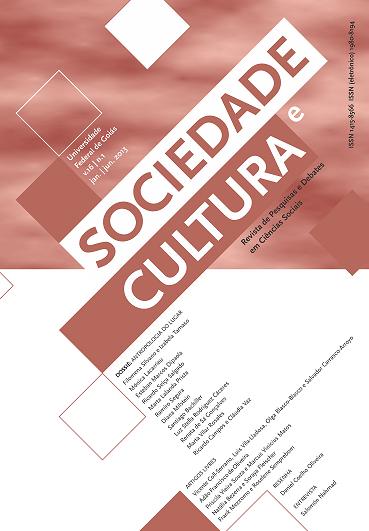“Colorir o passado com o presente”: proposta de construção e apropriação de memória no projeto Juventude, política e religião: diálogos intergeracionais
DOI:
https://doi.org/10.5216/sec.v16i1.28219Keywords:
memória, direito à memória, videodocumentário, religião, juventudeAbstract
Análise de projeto que grava em vídeo depoimentos de líderes evangélicos perseguidos pela ditadura militar, com o intuito de que jovens da atualidade tenham contato com esse material. Utiliza reflexões de Michael Pollak e Maurice Halbwachs, e as relações entre memória e temporalidades contemporâneas tecidas por Andreas Huyssen e Martin-Barbero. São percebidas disputas de identidade e pertencimento dentro do grupo e no contexto amplo da história oficial/memória nacional.Downloads
Download data is not yet available.
Downloads
Published
2014-02-06
How to Cite
SOUZA, Priscila Vieira; MATOS, Marcus Vinicius. “Colorir o passado com o presente”: proposta de construção e apropriação de memória no projeto Juventude, política e religião: diálogos intergeracionais. Sociedade e Cultura, Goiânia, v. 16, n. 1, p. 0.5216/sec.v16i1.28219, 2014. DOI: 10.5216/sec.v16i1.28219. Disponível em: https://revistas.ufg.br/fcs/article/view/28219. Acesso em: 28 feb. 2026.
Issue
Section
Free Articles
License
Authors who publish in this journal agree to the following terms:
- Authors retain the copyright and grant the journal the right of first publication, the work being simultaneously licensed under the Creative Commons Attribution License, which allows the sharing of the work with acknowledgment of authorship and of the initial publication in this journal;
- Authors are authorized to enter into additional contracts separately, for non-exclusive distribution of the version of the work published in this journal (eg, publishing in an institutional repository or as a book chapter), with acknowledgment of authorship and of the initial publication in this journal;
- Authors are allowed and encouraged to post and distribute their work online (eg, in institutional repositories or on their personal page) at any point before or during the editorial process, as this can bring productive change as well as increases the impact and the citation of the published work (see O Efeito do Acesso Livre).



